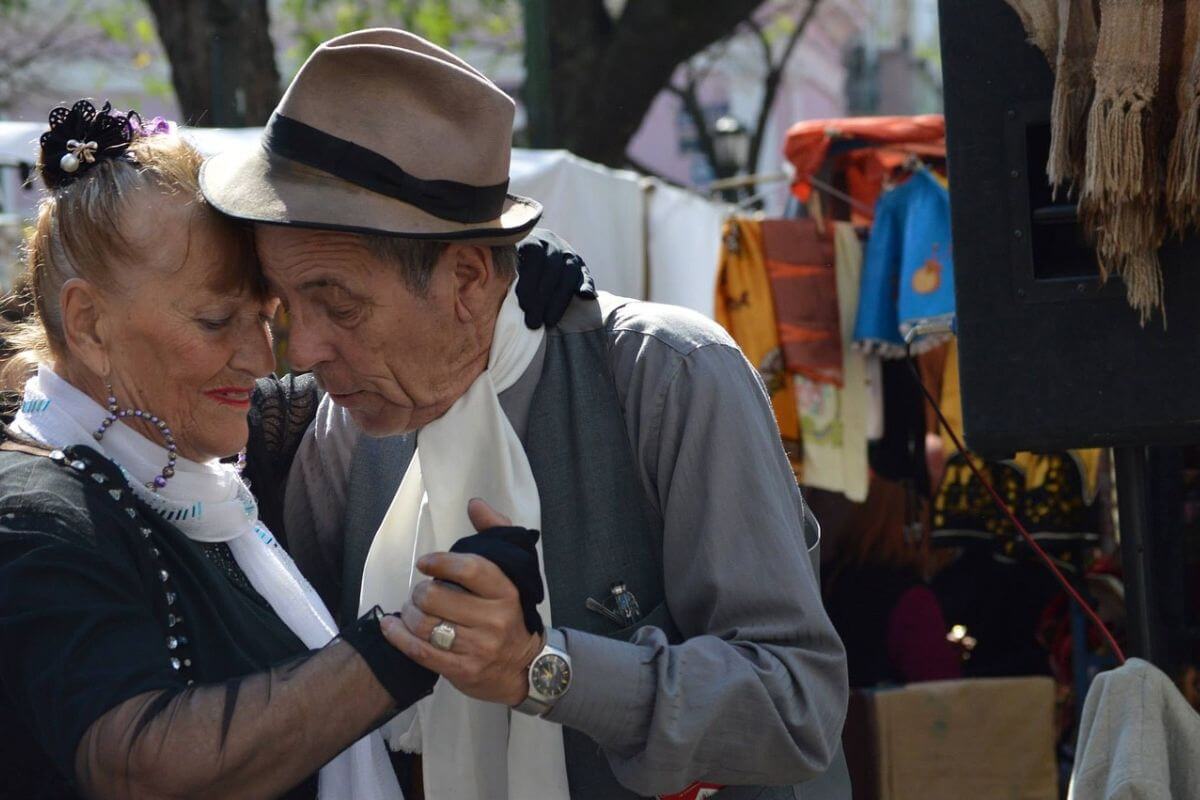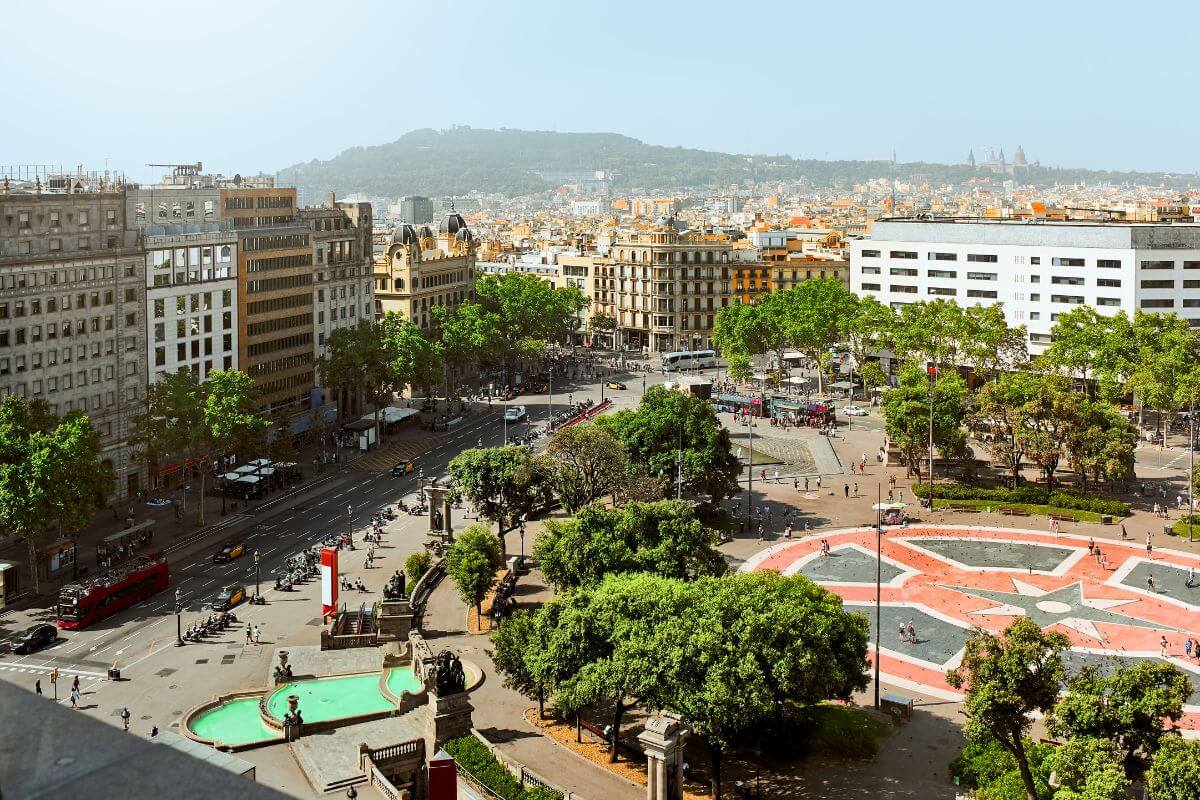The correct term for someone from Argentina is an “Argentine”, crucially not an “Argentinian”. Argentina is extremely ethnically diverse and while there are many groups in the nation which may consider themselves something else before Argentine, for a citizen of Argentina the word is Argentine.
So, to clear up any confusion, “Argentinian” is essentially wrong and should not be used.
Whether you are talking about a person or something which comes from Argentina like food or a product, you should always use the word “Argentine” and not the term Argentinian.
Let’s find out more.

What Do You Call Someone From Argentina?
What do you call people from Argentina?

People from Argentina are called Argentines, crucially not Argentinian.
There are a lot of other terms that particular groups in Argentina may prefer, but taking a general view of it, Argentine is the one term you’ll need for someone of Argentine nationality.
It’s important to remember there’s virtually always some degree of disconnect between the legal, national citizenship and the self-professed, even genetic ethnic identity of people living in a given country.
Someone with an Argentine passport may be an Argentine from that standpoint, but they may have other ideas about their own identity.
Argentina is extremely ethnically diverse, and so there are many different groups of people in the country who belong to different identities.
Unfortunately, though, the country does not really collect data on the population’s demographics in the way other nations do.
Ethnic and racial censuses are not conducted, and the national Census does not generally include questions about ethnicity.
With that said, there have been studies performed by other bodies to determine the ethnic makeup of Argentina.
Unsurprisingly, many of the nation’s native people today are of European descent.
Estimates suggest around 85% of the country’s present population is of European descent, while a further 11% is of Mestizo descent.
This term refers to a mix of indigenous and European heritage due to the mingling of settlers and indigenous peoples in the past.
All of these would call themselves Argentines.
There are 35 indigenous ethnic groups in Argentina. Around 955,000 Argentines identify as either indigenous or as the first generation descendants of indigenous people.
The largest population of indigenous people today is the Mapuche, with around 205,000 inhabitants.
The Toba people represent around 127,000 Aregntines, and the Guaraní around 105,000.
The list could go on, but the point is simply that while all these people are, legally, Argentines, they themselves likely prefer to use the term for their indigenous identity.
Where do Argentines live?
To further complicate the matter, Argentines are spread far and wide across the world and may still feel themselves to be Argentine even if they are not a legal citizen of the country.
There are an estimated 45 million Argentine people living in the world, with the overwhelming majority naturally living in Argentina. 43 million of the 45 live in Argentina.
The largest population of Argentines outside of Argentina is, unsurprisingly, in Spain—where there are around a quarter of a million Argentines living today.

These people may consider themselves to be both Spanish and Argentine.
The same is true of the estimated 215,000 Argentines living in the United States.
Naturally, they are also spread wide across South America.
The biggest population outside of Argentina can be found in Chile, where there are around 100,000 Argentines living today.
You also have large populations living in Brazil, Paraguay, Bolivia and Uruguay.
Obviously, how to address any of these people is really simply a question of the individual.
However, when it comes to the general term for someone from Argentina, whether they live in their native country or elsewhere, is just Argentine.
How should you address an Argentine, then?
How do you address an Argentine?
With all the confusion about individual ethnic identity or how someone’s identity might change depending on where they live, the easiest way to cut through it all is just to ask the person you’re talking to.
Don’t refer to someone by their ethnic identity as a matter of habit—use their name!
With that said, the conventions in Argentina are largely the same as elsewhere.
If you are speaking English, unless you’ve got permission to use their first name, then use their title followed by their surname.
“Sir” or “ma’am” will likely work fine in most cases, too.
What do Argentines call Argentina?
Argentines simply refer to Argentina as Argentina.
Of course the word is slightly modified in Spanish and we use an Anglicized version of the country’s name.
Often, natives and Spanish speakers will refer to Argentina is la Argentina, meaning the Argentine in English.
Of course, the official name of the country is República Argentina.
Different indigenous populations may have different names for the country, though of course when referring to the country in Spanish they are more likely to refer to it as Argentina.
This word is thought to come from the Italian meaning made of silver, and seems first to have been given to the country by Italian navigators, rather than Spanish ones.
Argentines are spread far and wide throughout the world, then, and while there may be other terms you should respect given the ethnic diversity of the nation,
Argentine is the only catch-all term you’ll need for people who recognize themselves as such.
Argentinian is never correct and should never be used, even though it remains common even among news outlets in the west today.
More in Demonyms
- What Do You Call Someone From Afghanistan?
- What Do You Call Someone From Algeria?
- What Do You Call Someone From Argentina?
- What Do You Call Someone From Australia?
- What Do You Call Someone From Azerbaijan?
- What Do You Call Someone From Bangladesh?
- What Do You Call Someone From Barbados?
- What Do You Call Someone From Belgium?
- What Do You Call Someone From Botswana?
- What Do You Call Someone From Crete?
- What Do You Call Someone From Denmark?
- What Do You Call Someone From Ecuador?
- What Do You Call Someone From Egypt?
- What Do You Call Someone From El Salvador?
- What Do You Call Someone From Fiji?
- What Do You Call Someone From Finland?
- What Do You Call Someone From France?
- What Do You Call Someone From Ghana?
- What Do You Call Someone From Greece?
- What Do You Call Someone From Greenland?
- What Do You Call Someone From Hong Kong?
- What Do You Call Someone From Iceland?
- What Do You Call Someone From India?
- What Do You Call Someone From Ireland?
- What Do You Call Someone From Israel?
- What Do You Call Someone From Japan?
- What Do You Call Someone From Jersey?
- What Do You Call Someone From Jerusalem?
- What Do You Call Someone From Jordan?
- What Do You Call Someone From Kazakhstan?
- What Do You Call Someone From Laos?
- What Do You Call Someone From Malta?
- What Do You Call Someone From Myanmar?
- What Do You Call Someone From Niger?
- What Do You Call Someone From Pakistan?
- What Do You Call Someone From Panama?
- What Do You Call Someone From Peru?
- What Do You Call Someone From Rwanda?
- What Do You Call Someone From Singapore?
- What Do You Call Someone From Sri Lanka?
- What Do You Call Someone From Sweden?
- What Do You Call Someone From Switzerland?
- What Do You Call Someone From Thailand?
- What Do You Call Someone From The Isle of Wight?
- What Do You Call Someone From The Ivory Coast?
- What Do You Call Someone From The Netherlands?
- What Do You Call Someone From Uzbekistan?
- What Do You Call Someone From Vatican City?
- What Do You Call Someone From Wales?
- What Do You Call Someone From Zimbabwe?

